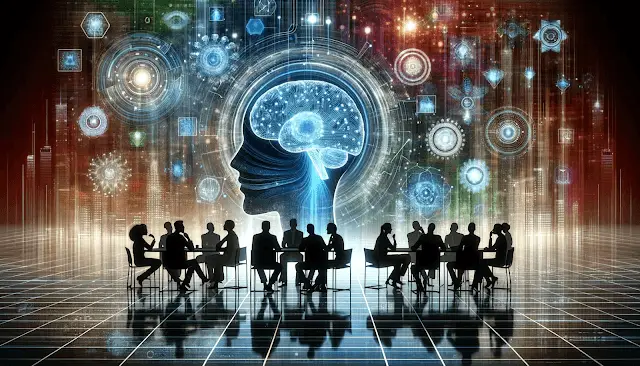Navigating the Future of AI - Perspectives from an Expert Panel
Exploring AI's Rapid Advancements
There was a recent insightful webinar hosted by a renowned institution. Experts from various fields of technology gathered under the Chatham House Rule. They discussed the future of AI and the evolving world of Artificial Intelligence (AI). The session offered a platform for open dialogue, focusing on the journey of AI from its early stages to sophisticated systems like ChatGPT.
AI's Evolution and Impact in the Workplace
The discussion began with an exploration of the Turing Test’s relevance in modern AI. Experts debated the transformative effects of AI in the workplace, particularly in IT and creative industries. Topics ranged from the application of AI in image manipulation and document creation to its broader impact on job roles.
The Creative Industries and Ethical Implications of AI
The conversation transitioned to AI’s influence in creative sectors, with a focus on balancing user capabilities and job preservation. Discussions touched on issues like intellectual property rights in AI-generated content and AI’s role in replicating human senses in fields like music and fragrance creation.
AI's Role in Reshaping Work and Skills
A key topic was AI’s impact on the workforce and the evolution of job roles. The panel discussed AI’s ability to optimize processes and the challenges posed by AI solutions that surpass human understanding. The consensus was that AI, while presenting challenges, also promises opportunities for skill enhancement and job creation.
Legal and Ethical Challenges in AI
The dialogue included a deep dive into the need for new laws and regulations tailored to AI. Discussions covered the complexity of applying traditional legal frameworks to AI and the importance of ongoing legislative efforts to address AI’s challenges and opportunities.
Societal Impact and the Future of AI
Panelists pondered AI’s future societal impact, discussing its convergence with other technologies and its potential effects on human identity and social interactions. The conversation also covered AI’s ability to enhance human capabilities and the ethical implications of its advancement.
Q&A Session: AI's Broader Implications
During the Q&A session, topics ranged from the impact of low-code/no-code platforms on programming careers to the ethical considerations and future human roles in an AI-driven world. The need for dynamic education and adaptability in the face of AI’s evolution was a recurring theme.
Final Thoughts: AI, Regulation, and Innovation
In conclusion, the panelists emphasized that while AI poses significant challenges, it also offers substantial opportunities for innovation and job creation. The key lies in proactive regulation, ethical considerations, and education in shaping AI’s future. The session closed with reflections on the importance of these discussions in navigating the complex landscape of AI development and implementation.
Summary
This webinar provided a comprehensive and anonymized overview of AI’s current state and future potential, adhering to the principles of the Chatham House Rule. As AI continues to reshape various aspects of our society, such discussions are crucial in guiding its responsible development and application.



